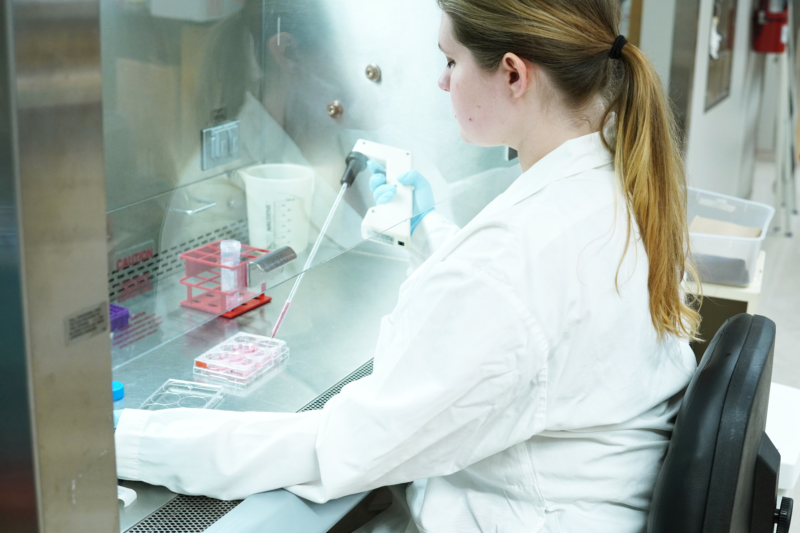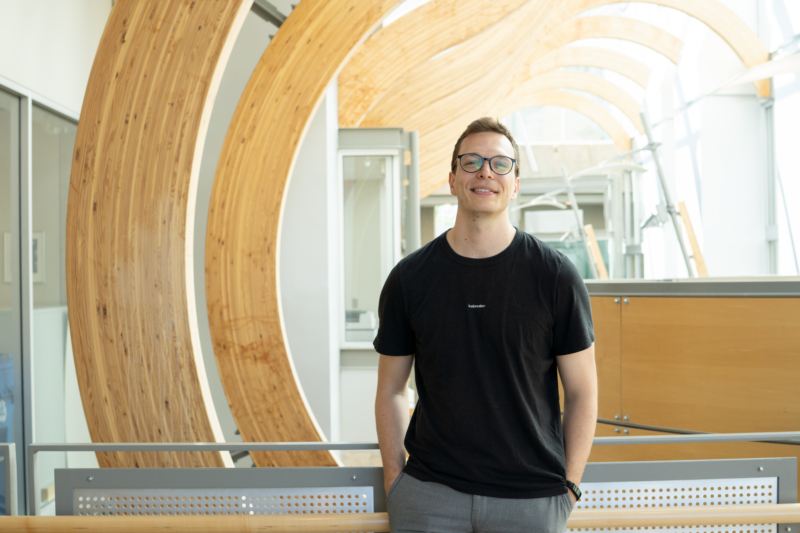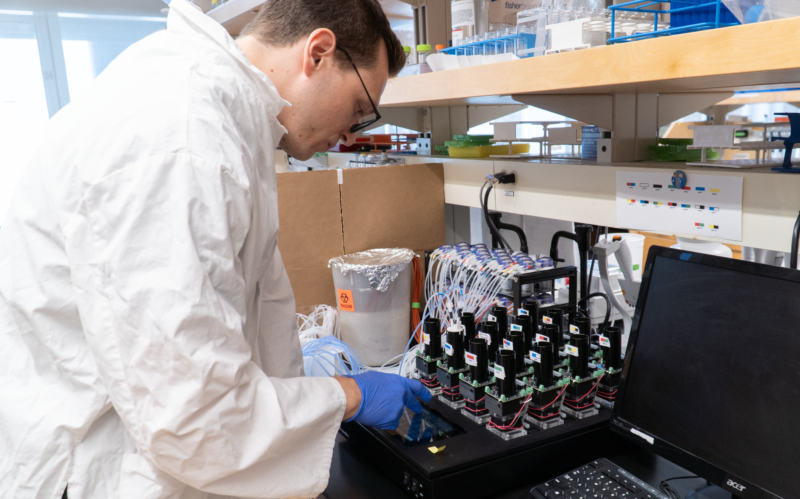Awards and recognition
Marie Johns and Karol Buda awarded 2023-2024 William and Dorothy Gilbert Scholarships
We are excited to congratulate Marie Johns and Karol Buda, the recipients of the 2023-2024 William and Dorothy Gilbert Scholarship in Biomedical Sciences. This award was established in 1995 by Professor Terrance Snutch in honour of William and Dorothy Gilbert of Santa Fe, New Mexico. The award is presented annually to recognize outstanding doctoral students at the Michael Smith Laboratories.

PhD candidate Marie Johns
Marie Johns joined the MSL in 2021 as a graduate student after completing her Bachelor of Science at UBC. Her interest in biology and love of the lab environment encouraged her to join the Jefferies lab (MSL, Department of Medical Genetics, Department of Microbiology and Immunology) as a Master’s student in Medical Genetics, before she transferred into the Medical Genetics PhD program.
“I’ve always been fascinated with biology, especially neuroscience and genetics. After joining the lab, I was very content with my supervisor, my lab mates, our research, and especially my thesis project, so when my supervisor suggested I fast-track to the PhD program, I was very excited to extend my studies that way,” shares Johns.
Johns’ research involves the use of both mouse and human stem cell-derived models to study Alzheimer’s disease. Her work aims to identify some of the molecular processes and mechanisms of Alzheimer’s, with the hope that this will lead to new targets for drug therapy. As part of this, Johns is looking for targets that might even be acted upon by existing drugs as a means of making new treatments available more quickly in the future.

Johns has particularly enjoyed how, through her work, she’s been able to identify and try to fill research gaps in real time. Her project grew from an extensive literature review to see what had been done before, and what still needed to be investigated in the field.
“It was really exciting to be able to design my PhD project specifically around filling current Alzheimer’s disease research gaps, then put the project right into practice in the lab.”
Johns hopes that, once finished her PhD project, she may have the opportunity to follow-up on her findings, and to follow the progress that is made in this area in the future.
Reflecting on what this award means at this time in her studies, Johns emphasizes, “it’s really important that awards like this are available to students to receive recognition and support for their research, especially as early-career scientists. It’s a great encouragement to keep going even when the research can be challenging.”

PhD candidate Karol Buda
Karol Buda joined the Tokuriki lab (MSL, Department of Biochemistry and Molecular Biology) in 2020 as a Master’s student before transferring into a PhD in 2022. Before joining the MSL, Buda completed a Masters in Biochemistry at the University of St. Andrews in Scotland. Always having had an interest in biochemistry as well as evolution, Buda’s research is focused on studying the evolution of novel protein functions and the mechanisms that drive them.
“Mixing the evolutionary aspect with the molecular mechanisms of proteins feels like the key in addressing the dilemma of what makes living things, living,” Buda says, reflecting on what drew him to the Tokuriki lab.
Buda’s current research centers around the evolution of two proteins that have separately evolved the ability to degrade organophosphate pesticides, enabling use of the pesticides as a food source for bacteria. He’s interested in which mutations led to them evolving this ability, why other similar proteins did not evolve these functions, and what role interactions between multiple mutations can play, known as epistasis.

He uses bioinformatics as well as experimental techniques in his work. By understanding the links between the molecular mechanisms and epistasis, his goal is to better define how proteins evolve so that these processes can be engineered to our advantage in the future. In particular, he’s interested to see how his work can lead to the engineering of enzymes that catalyze reactions like plastic degradation, and converting waste back into usable products.
“We can start to consider how to engineer reactions and enzymes that have never existed in nature, simply by understanding how mutations will interact with each other; once we get there it’s almost limitless. There is still a long way to go, however.”
Buda is grateful to have the significance of his research recognized, and to have the opportunity to highlight his work, through this award.
“It’s great to see this field being represented, and it’s a nice opportunity to put a spotlight on this kind of research.”
Congratulations once more to these two outstanding scientists. We’re excited to take part in celebrating their achievements thus far, and look forward to following the outcomes of their research projects.